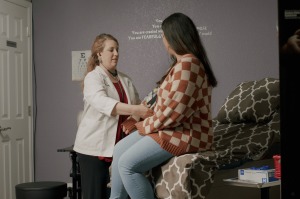Episcopalians to Apologize for Slavery Support
The Episcopal Church is poised to apologize for failing to oppose slavery, but making up for its 19th century inaction won't come without 21st century controversy.
COLUMBUS, Ohio (AP) – The Episcopal Church is poised to apologize for failing to oppose slavery, but making up for its 19th century inaction won't come without 21st century controversy.
At its national convention beginning June 13, the church is expected to approve a resolution expressing regret for supporting slavery and segregation. But the debate will likely get more heated when a second resolution comes up, calling for a study of possible reparations for black Episcopalians.
The church, already divided over the separate issue of gays' role in the church, is struggling over whether reparations would be a meaningful gesture 141 years after the Civil War ended.
"A lot of times you say, 'I'm not a racist, I didn't have slaves, no one in my family had slaves, I could not possibly be complicit in this,'" said Sharon Denton, a member of the church's National Concerns committee that deals with domestic ministry and mission issues.
"But if you start digging back in the history of things, you find out there were a lot of things that come to you that were built on slave-holding and the slave trade," said Denton, a member of a small, all-white parish in Salina in central Kansas.
The Rev. Harold Lewis, a black priest and rector at Calvary Episcopal in Pittsburgh, called the idea of reparations outrageous and impractical.
"The better thing to do is to talk about how we can work to eradicate racism and how we can fight to eliminate economic disparities regardless of racism," said Lewis, the denomination's former longtime staff officer for black ministries.
The church declined to embrace a resolution three years ago backing federal legislation to create a national reparations task force. This year's resolution is more focused on the church, calling for a study of how the denomination benefited economically from slavery and how that benefit could be shared with black Episcopalians, about 5 percent of the denomination's 2.2 million members.
But it doesn't give specifics, and both supporters and detractors say reparations could mean anything from cash payments to college scholarships.
Previous attempts to deal with the issue have proven difficult. In 1969, the church's General Convention – or legislative body – approved a $200,000 grant to the National Committee of Black Churchmen in response to calls for reparations from activist James Forman. But the move created a significant backlash among parishioners.
In the 19th century, the slavery issue tore other denominations in two, including Baptists, Methodists and Presbyterians.
Southern Episcopalians temporarily formed their own branch during the Civil War but were quietly marked absent during the northern denomination's 1862 convention, then welcomed back into the fold when the war ended.
Other denominations have since apologized for their support of slavery.
Earlier this year, the Church of England – the root of the Anglican Communion of which the Episcopal Church is a part – voted to acknowledge its complicity in the global slave trade. In 2001, the Indianapolis-based Christian Church (Disciples of Christ) admitted that its apathy prolonged the suffering of enslaved blacks.
The Southern Baptists, born of the Baptist split over slavery, apologized more than 10 years ago for condoning racism for much of its history.
The Presbyterian Church (U.S.A.), which divided over slavery in 1861 and reunited only in 1983, has supported the study of reparations within the church and has backed a federal reparations bill.
The Episcopal Church's apology is important for the message it will send, said the Rev. Kwasi Thornell, a black priest from Maryland and a member of the National Concerns committee.
"It's not going to change the world, but I think it's an important step that we recognize how we've been involved in a sinful action," Thornell said. "For me as an African-American priest, it would mean a lot for me to hear."
While the church has been slower to apologize than other denominations, it has worked hard to educate members about racism in recent years, said Ed Rodman, a professor at the Episcopal Divinity School in Cambridge, Mass.
Those efforts and a growing understanding that northerners benefited as much from slavery as southerners has brought the ideas of an apology and reparations to the forefront today.
Helping fuel that understanding is a documentary film, "Traces of the Trade," by independent filmmaker Katrina Browne.
The movie tells the story of Browne's New England ancestors, the DeWolfs, the largest slave-trading family in the United States and prominent Episcopalians from Rhode Island. Browne expects to show the film at the convention.
At another time, the reparations' debate might be one of the convention's top issues. This year, it's likely to take a back seat to debate over same-sex issues and the possibility of a schism with the worldwide fellowship of Anglicans over the issue.
Yet the gay issues debate is so fierce it extends even to slavery.
Some conservatives, who find themselves in the minority with their opposition to gay marriage and clergy, see themselves as being discriminated against. As the Rev. Paul Zahl, dean of the conservative Trinity Episcopal School for Ministry in Ambridge, Pa., puts it: "We just find it hard this moment to take it seriously, when we ourselves feel like African-Americans did 50 years ago."




























